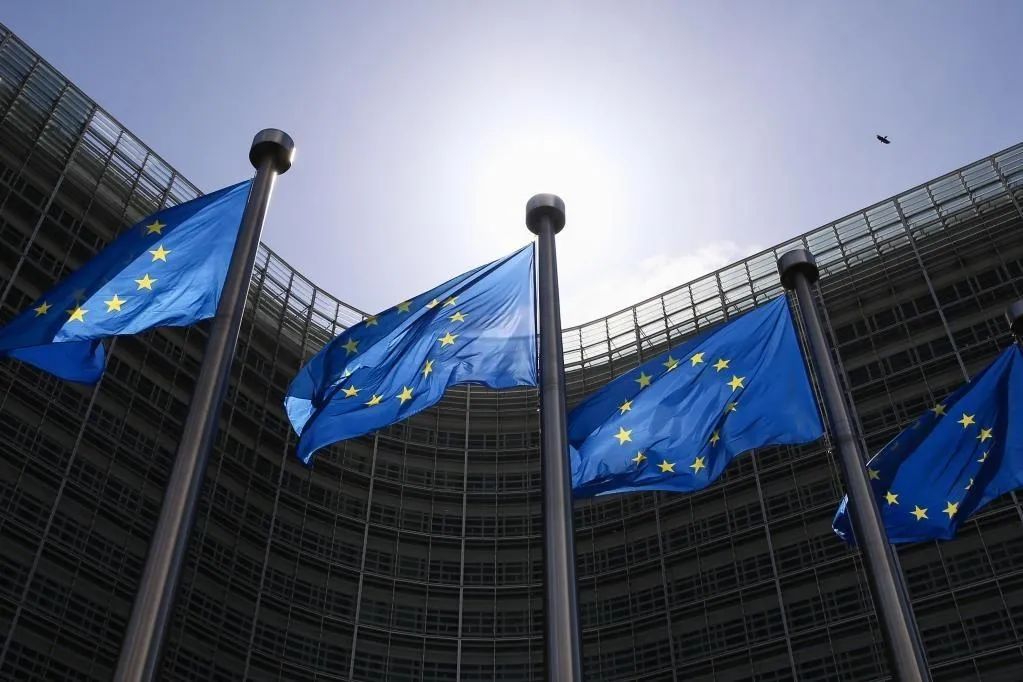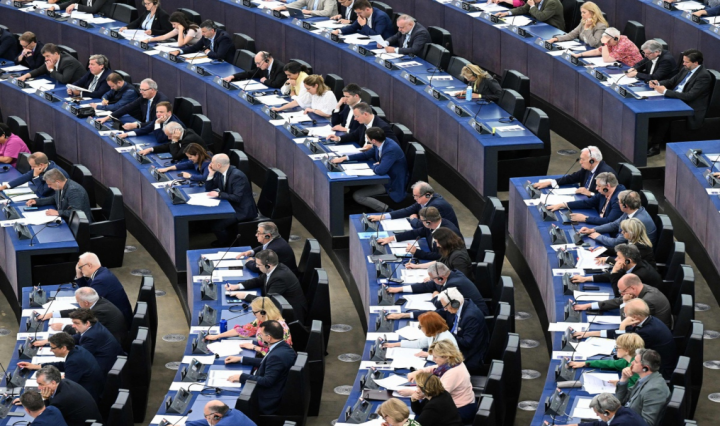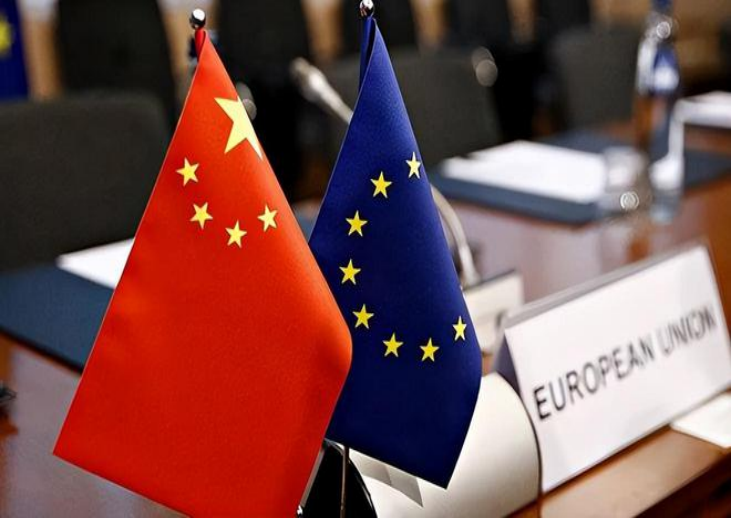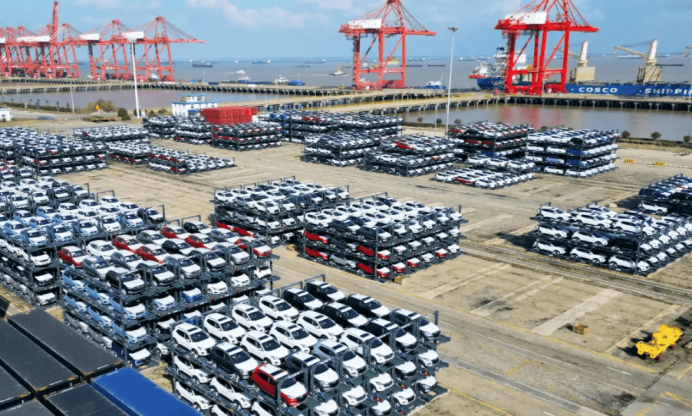The EU's imposition of tariffs on Chinese electric vehicles triggers widespread opposition, and open cooperation is the key to breaking the deadlock!
![]() 10/10 2024
10/10 2024
![]() 434
434


Source: ZhiCheKeJi

The EU should make a rational choice
On October 4th local time, the EU held a vote on whether to impose a five-year countervailing duty on Chinese electric vehicles. It was decided to impose an additional tax of up to 35% on electric vehicles made in China, on top of the existing 10% tax, with the plan set to take effect at the end of October.
The specific voting results were 10 countries in favor, 5 against, and 12 abstentions. The member states that voted in favor accounted for less than 50% of the EU's total population. The European Commission's claim of having "secured the necessary support" was clearly lacking in conviction. The EU's anti-subsidy investigation was merely based on its rules of procedure and was not overturned.
The countries that voted in favor were France, Italy, Ireland, the Netherlands, Denmark, Bulgaria, Poland, as well as Lithuania, Estonia, and Latvia. These countries' combined population accounts for 45.99% of the EU's total population.
The countries that voted against were Germany, Hungary, Malta, Slovenia, and Slovakia, accounting for 22.65% of the EU's total population.
The countries that abstained were Spain, Portugal, Romania, Belgium, Greece, Croatia, the Czech Republic, Cyprus, Luxembourg, Austria, Sweden, and Finland, accounting for 31.36% of the EU's total population.

Several EU countries chose to vote in favor of imposing tariffs on China, driven by the motive to "push" Chinese companies to invest in Europe. France, blindly following the footsteps of the United States, risks becoming its pawn.
It is worth noting that Spain voted in favor in the consultative vote in July but abstained in the final vote, which may be related to Spanish Prime Minister Pedro Sánchez's recent visit to China and his public opposition to tariffs on China.
Slovenia and Germany both abstained in July but voted against in the final vote. Germany, in particular, has intricate and extensive interests in the Chinese market, especially in its automotive sector. After the bill's passage, German Finance Minister Christian Lindner immediately warned the EU that the move amounted to initiating a trade war.
Germany faces a dilemma: on one hand, it fears potential damage to its interests in China; on the other, it worries that the rise of Chinese new energy vehicles in the European market may fundamentally impact its traditional automotive industry. This ambivalence undoubtedly adds complexity and uncertainty to Germany's position in international trade. Sources indicate that German Foreign Minister Annalena Baerbock will visit China in the "coming days," with "many things to discuss."
Hungary serves as a gateway for China's new energy vehicle industry into Europe. Currently, BYD and CATL are advancing investments and factory construction in the country, with BYD having selected Szeged, Hungary, as the location for its first European new energy vehicle production base. Many other Chinese companies, such as EVE Energy and Sunwoda, have also chosen Hungary as their preferred production base. Hungary's opposition to the EU's tax policy is understandable.
Following the EU's vote to impose steep tariffs on electric vehicles imported from China, Volkswagen, Mercedes-Benz, and BMW have successively expressed their opposition.
Volkswagen stated on the 4th that the EU's vote in favor of imposing steep tariffs on Chinese electric vehicles was a "wrong approach." Volkswagen Group CEO Oliver Blume has been urging the European Commission to reevaluate and adjust tariff policies, allowing Chinese automakers to avoid tariffs by investing in Europe.
Shortly thereafter, Mercedes-Benz issued a statement on the 5th, arguing that the EU Commission's proposed countervailing duties were a mistake. They believed that the policy would weaken an industry's competitiveness in the long run, hinder transformation and upgrading, and harm the climate, calling on the EU to postpone implementation.
BMW issued a statement on the 6th, explicitly stating that the EU's practice of imposing additional tariffs on Chinese electric vehicles is completely unfeasible. It would not only fail to enhance European automakers' competitiveness but could potentially harm those operating globally. BMW CEO Oliver Zipse described the voting results as a "fatal blow to the European automotive industry."
There is still a negotiation window open between China and the EU before the end of October. It is reported that on the 7th, both sides returned to the negotiating table once again. China strongly urged the EU to demonstrate its political will and return to the correct path of resolving trade disputes through consultations and negotiations.

Revealing the background and process of the EU's decision
The EU's proposal for countervailing duties on Chinese electric vehicles is not unfounded but based on a complex mix of economic, political factors, and international trade rules. In recent years, as China has rapidly risen in the electric vehicle sector, the EU has felt unprecedented competitive pressure. To safeguard local industrial interests, the European Commission proposed imposing countervailing duties on Chinese electric vehicles, sparking heated discussions and negotiations among EU member states. Blaming high-quality, low-cost Chinese electric vehicles for this situation is tenuous at best.

Specifically, on October 4th, 2023, the EU initiated an anti-subsidy investigation into electric vehicles imported from China; on July 4th, 2024, it imposed provisional countervailing duties on Chinese electric vehicles; and on August 20th, it released a draft arbitration ruling on the anti-subsidy investigation, proposing to impose countervailing duties ranging from 17% to 36.3% on Chinese electric vehicles.
It is noteworthy that since the end of June, China and the EU have held over ten technical consultations at the bureau level and two sub-ministerial consultations on the electric vehicle countervailing duty case. On September 19th, Minister Wang Wentao and EU Executive Vice-President and Trade Commissioner Valdis Dombrovskis held a comprehensive, in-depth, and constructive meeting, where both sides expressed their political willingness to resolve differences through consultations and agreed to initiate price undertaking consultations to avoid escalating trade frictions. In the subsequent 14 days, the Chinese and European technical teams held six rounds of technical consultations, with China repeatedly and fully listening to the demands and opinions of the European and Chinese industries, demonstrating an open and cooperative attitude and maximum flexibility in the negotiations. China left room for the EU in its remarks, stating that it would continue to "proceed from the overall situation of safeguarding the China-EU comprehensive strategic partnership and always uphold the utmost sincerity in properly handling differences through dialogue and consultation."
However, the EU continues to move further down the wrong path, stubbornly adhering to its position. They seem convinced that failing to impose tariffs on Chinese imports of new energy vehicles would bring incalculable disastrous consequences. On October 4th local time, the issue was put to a public vote. Prior to this, there were disagreements within the EU, with some member states, such as Germany, publicly expressing opposition, arguing that the measure could damage trade relations between China and the EU and destabilize global supply chains. However, after multiple rounds of consultations and weighing the pros and cons, the proposal was ultimately approved.
In fact, from the EU's stated position that "even a final ruling will not prevent continued dialogue with China," it is clear that the EU hopes to retain the "right" to initiate unreasonable investigations while fearing a complete rupture of relations and missing out on valuable opportunities to attract Chinese capital and technology. Regarding the EU's "double standards," China's position is clear: supporting taxation will only shake and hinder the confidence and determination of Chinese enterprises to invest and cooperate with Europe.
Obviously, the EU's move is intended to follow the United States' lead. However, the EU also has its own calculations behind this move. They are attempting to increase their bargaining power in negotiations with China by imposing tariffs, aiming to "reap the benefits" of acquiring core technologies in China's new energy vehicle sector. As they haggle with Chinese enterprises, the EU seems to be implying, "You're making a fortune here, so you should share it and not hoard all the benefits for yourself; you must share the dividends with our enterprises."
The EU is undergoing a "profound awakening." While European automakers have now "suddenly awakened," the reality is that "Europe has significantly lagged behind." Tariff measures can only briefly provide a respite for European automakers.

Details and potential impacts of countervailing duties
According to relevant regulations, once implemented, the tariffs will undoubtedly increase the cost burden of Chinese electric vehicles sold in the EU market, leading to price increases for Chinese automakers exporting electric vehicles to the EU, thereby weakening their competitiveness in the European market. However, it "will not completely shut out Chinese automakers," and it is expected that China's electric vehicle exports to Europe may decrease by approximately 30% in the short term. Additionally, this move could potentially trigger trade frictions between China and other major economies.
However, according to the survey results of the European Union Chamber of Commerce in China, for most Chinese automakers, the EU's imposition of tariffs above 10% is considered high, and the temporary tariff range of 17.4% to 38.1% poses a severe market access barrier, directly and negatively affecting Chinese automakers' exports to Europe. Nevertheless, as the largest market for electric vehicle production and sales globally, China's domestic sales far exceed the combined total of the European and American markets. China's electric vehicle exports to Europe account for only about 5% of China's total electric vehicle production, and the market share of Chinese independent electric vehicle brands in Europe is far lower than that of European local enterprises.
For the EU, while it may appear to safeguard the interests of its local industries in the short term, in the long run, overprotection may deprive European automakers of golden opportunities for technological innovation and market expansion, potentially stifling the sustained prosperity of the entire industry. Additionally, electric vehicle prices are bound to be affected, increasing the cost of car purchases for European consumers and potentially hindering the EU's transition to electric vehicles. Furthermore, this move could trigger global trade disputes, causing immeasurable negative impacts on the global economy.
It is essential to note that Europe's transition to electric vehicles has not been smooth sailing. This year, the growth of electric vehicle sales in Europe has shown signs of slowing down. One of the key factors contributing to the low acceptance of electric vehicles among European consumers is the lagging competitiveness of electric vehicles produced by European automakers in the market. Facing the EU's 2035 ban on the sale of internal combustion engine vehicles, electrification has become an inevitable choice for European automakers. Even if the EU erects tariff barriers to protect local enterprises, the EU's competitiveness in the automotive supply chain is already insufficient.
The current state of cultivation of the electric vehicle market in Europe is unsatisfactory. Meanwhile, European automakers have a significant advantage in the research and development of internal combustion engine vehicles, making them hesitant in the face of the transition to electric vehicles. They want to maintain their leading position in the internal combustion engine sector while fearing missing out on the future trends of electric vehicles.
In this context, there seem to be only two paths for redemption for European automakers: First, reduce research and production costs while ensuring product quality and competitiveness to enhance market competitiveness; second, rely on the rapid expansion of the European electric vehicle market to achieve a significant transformation in the market landscape. However, neither path can bypass a crucial factor—cooperation with China. European automakers seem to have a keener insight into this than European politicians.
BMW's Chairman has repeatedly stated publicly that imposing tariffs will not only hurt German automakers but also intensify trade frictions between China and Europe, triggering "trade disputes that benefit no one." Mercedes-Benz executives have also strongly opposed the imposition of tariffs. Just a day before the EU vote, it was reported that BMW had taken further action by withdrawing from the next round of funding for Northvolt, a Swedish battery manufacturer. Once hailed as the "hope of European new energy," Northvolt had signed a long-term cooperation agreement worth up to 2 billion euros with BMW even before it officially went into production in 2020. Subsequently, several European automotive giants, including Volkswagen, also signed contracts exceeding $55 billion with Northvolt. However, Northvolt's performance has fallen short of expectations, with delivery times repeatedly delayed and battery quality frequently questioned. In this context, BMW decided to adjust its strategy and withdraw from Northvolt's investment plan.
Germany has been the loudest voice of opposition. According to reports, German Chancellor Olaf Scholz frequently communicated with leaders from various sectors in Europe in the days leading up to the vote, emphatically pointing out the severe consequences that would ensue if the EU imposed tariffs on Chinese electric vehicles. On October 3rd, German trade unions and industry representatives jointly issued a "clear opposition statement," firmly opposing the EU's imposition of tariffs on Chinese electric vehicles, arguing that this move is a "dead end" that will not only fail to solve the EU's internal problems but will exacerbate the complex situation.
The final vote on the tariffs is still some time away. For both China and the EU, there is still a possibility of resolving the issue through negotiations. In fact, officials from various European countries and even the EU itself have openly or implicitly expressed their expectations for technology transfer from Chinese enterprises to Europe. In this context, Chinese automakers will brave the tide and embark on a journey to Europe under the EU's "market for technology" strategy.
Regarding the final vote in November, the European Parliament is expected to make some concessions from the current maximum tariff rate of 36.3%. Subsequently, China and the EU will engage in a new round of negotiations on deepening cooperation in the current situation. The core purpose of these negotiations will undoubtedly focus on joint ventures and cooperation—Chinese enterprises entering Europe to embark on joint venture projects together.

Countermeasures of China and Europe
The EU's decision to impose anti-subsidy duties on Chinese electric vehicles is a complex and sensitive trade policy issue that involves multiple aspects of interest weighing and choices. Its outcome will not only affect the direction of China-EU economic and trade relations but also impact the future development trends of the global trade landscape and industrial layout.
When facing tariff challenges, Chinese automakers can choose to build factories in Europe, form joint ventures with European automakers, and strive to minimize potential losses.

On October 4, the Ministry of Commerce's spokesperson responded to a journalist's question about the EU's vote to adopt the final draft of the anti-subsidy case on electric vehicles, stating that Chinese electric vehicles adhere to market dominance and rely on full competition. Through continuous independent innovation, they have increased the quality supply of green public goods worldwide and made significant contributions to the global fight against climate change. The EU's protectionist approach seriously violates WTO rules, disrupts the normal international trade order, not only hinders China-EU trade and investment cooperation but also delays the EU's own green transformation process and affects global efforts to combat climate change.
The EU side stated that it would continue to maintain close communication with China and strive to find solutions acceptable to both sides. This includes but is not limited to exploring specific implementation plans for modifying anti-subsidy duties, strengthening cooperative research and development in the field of new energy vehicles, and promoting the establishment of a more fair and reasonable international trade order. At this critical juncture of the global new energy revolution, it may not be a wise choice for the EU to impose anti-subsidy duties on Chinese electric vehicles. Cooperation and win-win outcomes are the correct path forward for the industry. Excessive protectionist barriers will not only hinder European companies from seizing opportunities for innovative development but may also exacerbate the spread of global trade tensions.
It is an undeniable fact that China's new energy vehicles are going global. If China loses the European market, it will not weaken its influence but will accelerate the booming growth of market demand for Chinese electric vehicles in Southeast Asia, South America, Africa, and the Middle East. Therefore, if the EU adopts trade protectionist measures, it may not achieve its intended purpose but may instead trigger more countermeasures, ultimately resulting in a loss greater than the gain.
Whether it is the EU's various obstructions, Chinese automakers' struggle to break through, or the intense geopolitical competition, one undeniable fact is that Chinese automobiles have stood at the forefront of the world. Admittedly, for Chinese automobiles to truly shine on the global stage in the future, they may still need to overcome numerous difficulties and pressures. Entering 2024, China's automobile manufacturing industry has climbed to new heights, and the trend of independent brands going global has become irreversible. It is imperative for independent brands to go overseas.
Disclaimer:
All works labeled "Source: XXX (non-Zhiche Technology)" on this official account are reprinted from other media. The purpose of reprinting is to deliver and share more information and does not represent the endorsement or authenticity guarantee of this platform. The copyright belongs to the original author. Please contact us for deletion if there is any infringement.








